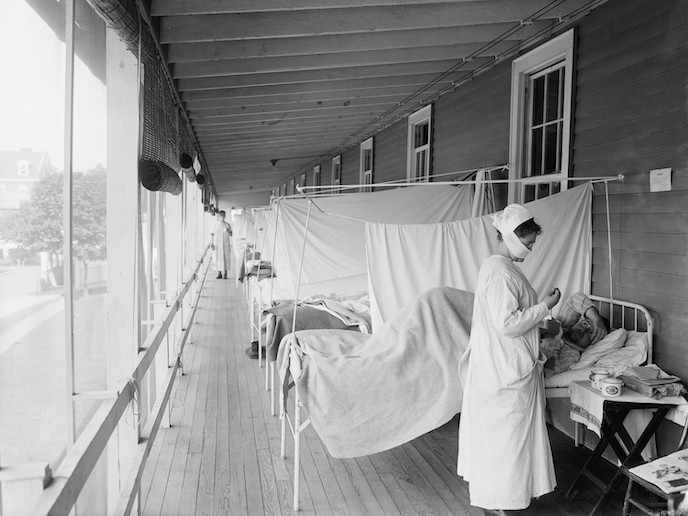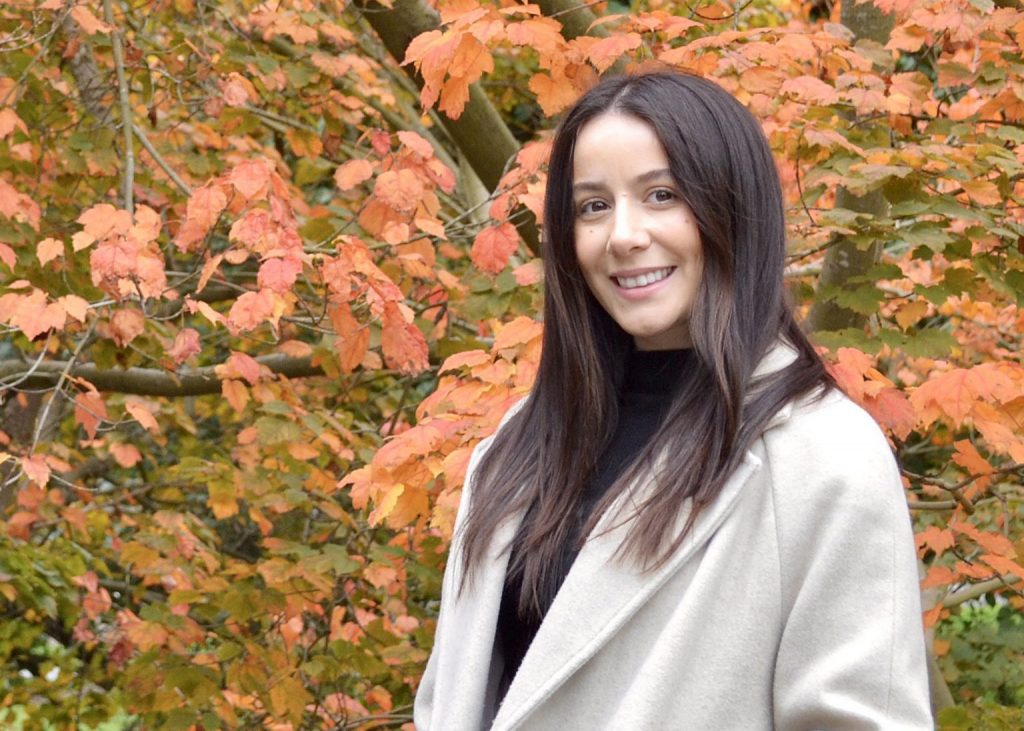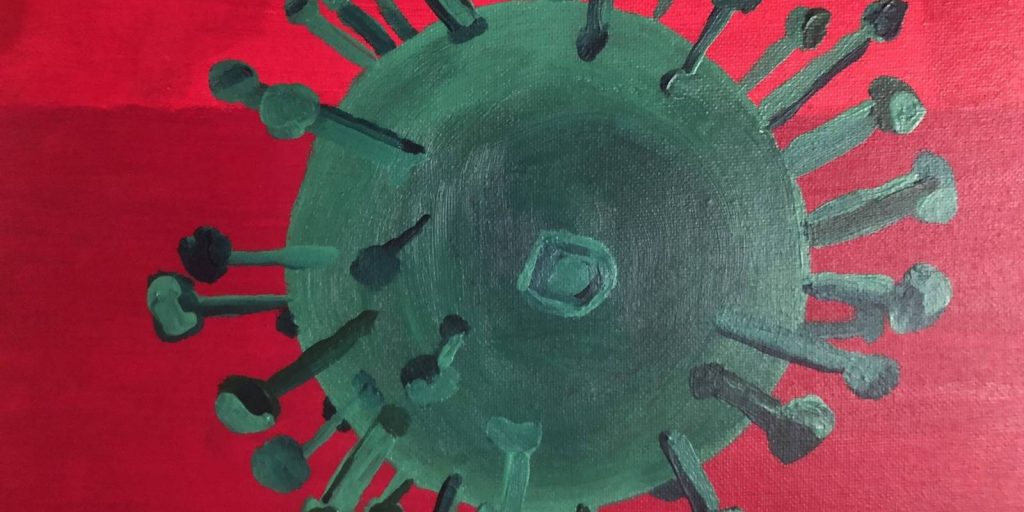DIS2 project featured in CORDIS Results in Brief

Jessica Dimka was recently interviewed about her MSCA project on disability as a risk factor during the 1918 influenza pandemic. Read more here:

Jessica Dimka was recently interviewed about her MSCA project on disability as a risk factor during the 1918 influenza pandemic. Read more here:

Watch yesterday’s webinar, “Social Inequality and Pandemic Mortality: the Biosocial Context of the 14th-Century Black Death” with Sharon DeWitte, here:
https://drive.google.com/file/d/1ro1D39YQSP1i-fSYGRNbzAeDRK9n485a/view?usp=sharing
And catch up on past webinars here:


At the next webinar (18 November, 1600 CET), two Master’s students affiliated with PANSOC will talk about their theses. Contact jessicad@oslomet.no if you need a link.
Carla Louise Hughes: “The Association between the 1918 Influenza Pandemic and Suicide Rates in Norway.”
In this talk I will discuss my master’s thesis topic regarding the association between the 1918 flu pandemic and suicide rates in Norway, between the years 1910-1920. Due to Norway’s neutral standpoint during WW1, there was no requirement to control for WW1 deaths. Therefore, this research pushes the front as it is the first attempt to explore this association in a neutral context.
Lara Maria Dora Steinmetz: “Vaccine hesitancy in Eastern Oslo during COVID-19: Associated sociodemographic factors and subsequent reasons.”
Now that the long awaited vaccines against COVID-19 have arrived, we rely on sufficient vaccine uptake in order to contain the spread of the virus. In this regard, vaccine hesitancy is paramount. Vaccine hesitancy can be understood as either the delayed acceptance or refusal of a vaccine despite its availability. Eastern Oslo has experienced disproportionately high infection rates throughout the lifespan of the current pandemic, which emphasizes the importance of vaccine coverage in this particular area. Vaccine hesitancy is however yet to be addressed. This study therefore aims to add to this knowledge, by identifying sociodemographic predictors and subsequent reasons for vaccine hesitancy.

If you missed the 28 October webinar with Hampton Gaddy, you can watch “Re-estimating the global and national death tolls of the 1918-20 pandemic: Updating Johnson and Mueller (2002)” here:
https://drive.google.com/file/d/1qsOf1GMe0G-mkEVB9Uz7wQje43tb2tvL/view?usp=sharing
Other past webinars are available here:


Last month, Carla Louise Hughes, Nan Zou Bakkeli, and Jessica Dimka talked about PANSOC research related to mental health and pandemics, as part of OsloMet’s marking of World Mental Health Day. The lunch seminar (lunsjpåfyll) was organized by the University Library, and a video is available here: https://filmet.no/lunsjpafyll-mental-health-and

Please join us on 11 November at 1600 CET for the next PANSOC webinar with Sharon DeWitte from the University of South Carolina. Contact jessicad@oslomet.no for a link.
Social Inequality and Pandemic Mortality: the Biosocial Context of the 14th-Century Black Death
Dr. DeWitte will discuss her bioarchaeological research on demographic and health trends before, during, and after the 14th-century Black Death in London. Her research reveals declines in health before the Black Death, but improvements thereof in the aftermath of the epidemic. These trends occurred in the context of changes in social inequality, highlighting its potential role in shaping health outcomes during infectious disease pandemics.
Dr. Sharon DeWitte (PhD. 2006, Pennsylvania State University) is a Distinguished Professor of Anthropology at the University of South Carolina. She is a biological anthropologist who specializes in paleodemography and paleoepidemiology – the reconstruction of population-level patterns of demography (mortality, fertility, and migration) and health using human skeletal remains ethically excavated and curated from archaeological sites. She is particularly interested in infectious diseases and famine conditions in the past, and focuses on determining how factors such as sex, gender, social status, health, developmental stress, nutritional status, and geographic origin affected risks of mortality during such crises. For over 15 years, her research has primarily focused on trends in health and demography before, during, and after the 14th-century outbreak of bubonic plague, the “Black Death”, in England. She is also generally interested in expanding the tools available to bioarchaeologists to examine health in the past in ways that put them in dialogue with human biologists studying living people. Her research has been supported by the National Science Foundation, the Wenner-Gren Foundation, the American Association of University Women, and the School for Advanced Research.
Now, she is making an impact as a member of the team at the Centre for Research on Pandemics & Society. Read a new interview with here: UK native named Student of the Year – OsloMet

The three PANSOC-affiliated masters students, Carla Hughes, Lara Steinmetz and Christina Torjussen, all presented their projects at a pandemic research student conference in Bergen 27. October. We at PANSOC are super-proud of the all and Christina even won a prize for her work and presentation.


If you missed this week’s webinar, you can catch up here:
https://drive.google.com/file/d/1op1HBfBqw7e3qZ9c6nrHZOY8MLwaSww5/view?usp=sharing
And all our past webinars are here:

Please join us October 28 at 1600 CET for the next PANSOC webinar. Contact jessicad@oslomet.no if you need a Zoom link.
Hampton Gaddy, University of Oxford, will present: “Re-estimating the global and national death tolls of the 1918-20 pandemic: Updating Johnson and Mueller (2002).”
The last two decades have seen the study of the 1918-20 influenza pandemic emerge as a field in its own right; the quantitative and qualitative description of most aspects of the pandemic have improved greatly in their depth and rigour. However, there has been little organised progress towards refining the available estimates of how many deaths the pandemic caused on global, regional, and national levels since the often-cited work of Johnson and Mueller (2002). In this paper, I perform an extensive literature review to chart the progress of the last twenty years in this area, and in doing so, I propose new consensus estimates of the pandemic’s death toll within more than 140 national borders. From those estimates, I produce three main results. First, I suggest that the pandemic killed 45 to 60 million people globally. This estimate equates to 2.4% to 3.2% of the world population at the time and is the narrowest well-founded global estimate to date. Second, I note the main geographical and contextual gaps in the field’s understanding of the pandemic’s mortality on the national level. In particular, I point out the lack of research on indigenous and military populations, as well as Eastern Europe, China, the Middle East, North Africa, East Africa, and Southeast Asia. Third, I use my revised national mortality estimates to demonstrate that several high-profile findings about the pandemic, its global correlates, and its global effects are poorly founded.
Hampton Gaddy is an MPhil Candidate in Sociology and Demography at the University of Oxford. His work on this topic was awarded the Oxford Institute of Human Sciences’ 2021 Wilma Crowther Prize for best BA dissertation.